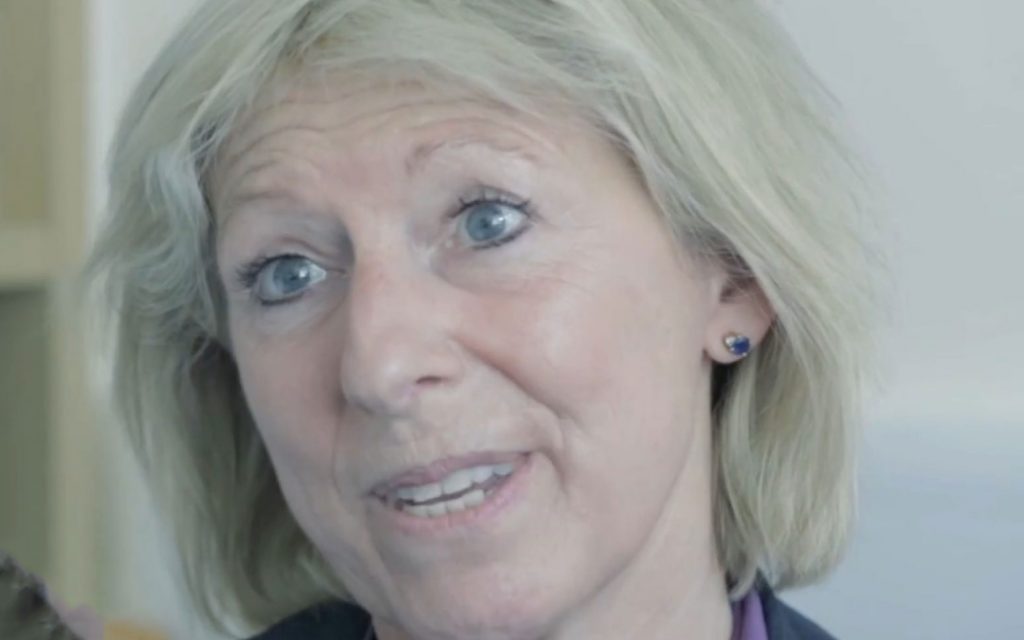Although primary brain tumours (brain tumours which started in the brain and haven’t spread from elsewhere) are rare and represent less than 2% of all cancers, they’re the biggest cancer killer of children and adults under 40.
However, the early symptoms of a brain tumour are difficult to recognise because they’re similar to the signs and symptoms of various other common ailments, such as a cold, flu or stress. This causes a potential delay in diagnosis and treatment.
Patients with a primary brain tumour often go to see their general practitioner (GP) several times before being referred for further investigation. And, in more than 50% of these people, symptoms become more severe and they end up being diagnosed in an emergency setting, rather than by their GP or in a specialist setting.

Dr Fiona Walter and her team at the University of Cambridge, are aiming to change this. They have conducted a study to gain a better understanding of the symptoms patients experience in the time leading up to their diagnosis, and why, how and when they sought help.
The study, which was recently published in the British Journal of General Practice, consisted of in-depth interviews with 39 people recently diagnosed with a brain tumour, and their family members.
Something’s not quite right
In the interviews, participants often described feeling like ‘something was not quite right’, and that they experienced ‘changes’ rather than ‘symptoms’. The most common changes were to sleep, memory, comprehension, writing, and balance, which also led to a loss of interest or ability to engage with daily living activities.
Other people, such as friends or family members, often noticed these changes first, but some said they didn’t point them out at the time because the changes were so subtle.
Dr Walter and her team found that people often experienced multiple subtle changes before receiving a diagnosis. More than half of the participants interviewed said they noticed these changes for over six months before seeking help.
Visits to the GP
Most people went to see their GP at least once and 21% reported going to their GP more than three times before they were diagnosed.
The study found that the quality of the communication, and the interaction between the patient and the GP varied among those interviewed. It also played a key role in how likely the person was to go back to their GP and how serious they thought their symptoms were.
Some people said they felt their symptoms were dismissed, which led to them downplaying what they were experiencing and made them reluctant to go back to the GP, others were actively encouraged to come back if symptoms persisted or got worse.
We hope these results will act as a springboard for further research to support and raise awareness of symptoms. Ultimately, we want to encourage people to seek help earlier and for GPs to take brain tumours into consideration when presented with someone displaying combinations of these subtle symptoms.
Dr Fiona Walter, lead author from the Department of Public Health and Primary Care
Based on the study’s results, the researchers would like to create a questionnaire to be trialled across the UK. This would test which symptoms, subtle or otherwise, and combinations of these, may be more predictive of a brain tumour to help GPs and neurologists make a faster diagnosis.
Driving awareness and change
The findings from this important study have provided valuable insight into what patients experience during the time leading up to diagnosis. It has highlighted possible opportunities to improve diagnosis times and we’re excited by the headway this research has made, and the changes it could drive forward.
Many people in our community tell us that their brain tumour diagnosis, or that of a loved one, came after a long period of worry and uncertainty about their health. This feeling that they could have been diagnosed earlier can add greatly to the fear and anxiety triggered by the diagnosis itself. This study by Dr Fiona Walter is a welcome step towards improving our understanding of the factors that can delay a brain tumour diagnosis and how those might be addressed.
Dr David Jenkinson, Chief Scientific Officer for The Brain Tumour Charity
